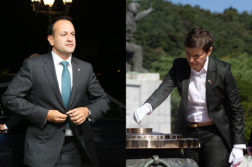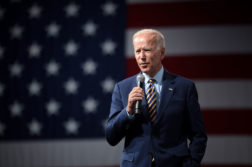Thursday will mark 45 days since Israel started Operation Protective Edge, the brutal assault that has now killed around 2,000 Palestinians. It is also the opening night of Sydney’s Israeli Film Festival (IFF), a nationwide showcase of Israeli cinema, sponsored by, among others, the Israeli embassy.
According to Israel’s ambassador to Australia, the festival provides a “unique insight” into his country’s “vibrant national character and dynamic culture”. Palestine supporters, including the University of Sydney-based Sydney Staff for BDS group, of which I am a member, have called a demonstration outside the festival’s opening night on Thursday, which NSW Police are trying to ban.
Why object to Israeli cinema? To judge from the IFF publicity, the films being screened present a sanitized image of Israel in which its bloody oppression of Palestinians has little or no place.
Among them is a “deeply compassionate depiction of the intricate and complex relation between Jews and Arabs in the late 1980s”, and a story of “two men… whom history insists must be adversaries, who forge an unexpected trust and friendship”.
Narratives like these suggest a liberal, peace-loving Israel, “shocked” – to quote the blurb of the same film – “by Hamas’ ruthless tactics”, and a genuine partner in the sham “peace process” in which Western governments are so invested.
No matter how pacifist, liberal and committed to justice a film’s message might be, the best thing to do for peace in Israel-Palestine is not to passively consume it, but to actively boycott any festivals in which it might be shown when these are sponsored by the Israeli state.
This is exactly the call being issued by supporters of the international Boycott, Divestment and Sanctions movement.
Along with its other cultural trappings, Israel uses cinema to shore up its carefully manufactured international image as an enlightened “beacon of democracy in the Middle East” – a world away from the fanaticism of the settlements, the separation wall, the checkpoints, the siege and butchery of Gaza with its devastated families, and its wanton attacks on hospitals, paramedics, rescue workers and fleeing civilians.
Only by strongly contesting Israel’s attempts to culture-wash its Palestine policy will public opinion make this oppression impossible to sustain.
Critics often oppose cultural boycotts, like the one recently undertaken at the Tricycle theatre in North London, on the grounds that they “silence the very voices who can make a change to Israeli policy from within”.
‘Making a change from within’ is not, however, why Israel sponsors cultural festivals. The IFF is put on by the Australia-Israel Cultural Exchange, a creature of the Australian and Israeli governments.
Its 2002 opening was announced by then-Minister for Foreign Affairs Alexander Downer and now-Israeli PM Benjamin Netanyahu – the implacable settlement builder and war-monger, who has openly admitted that he will never consent to full Palestinian sovereignty.
Stimulating progressive change from within is not Netanyahu’s brief. The films which best promote Middle East peace are those the Israeli state wants to ban, not the ones it wants to sponsor.
Claims about the power of art to bring about political change are, in any case, massively overstated. Australia – like Israel, a country whose founding was a crime, and that has mercilessly persecuted its own indigenous inhabitants – has a film industry that for many years has delivered a progressive message about these terrible acts and their aftermath.
Yet all this conscientious cultural groundwork has singularly failed to deliver either improvements to the overall lot of Aboriginal people, with removals of Aboriginal children from their families continuing unabated, and indigenous communities still buckling under the weight of overwhelming dispossession, or a shift in public sensibility powerful enough to demand change.
It is not sensitive and compassionate films that will bring justice to either Aboriginal people or Palestinians, but a robust politics of public pressure.
Critics also try to discredit the boycott on the grounds of its selectivity, claiming that it is incumbent on cultural boycotters not to limit their activism to Israel, but to protest against human rights abuses by, for example, China, Russia or Syria as well.
If these critics are genuine, let them organise boycotts or other protests against these states: we will gladly support them, as many of us have already often done (see here for a personal example). But don’t criticize us for not simultaneously organizing demonstrations against everything.
It doesn’t invalidate the pro-Palestine movement that we don’t also have the time to fight all the other vital battles too – just as the fact that a person’s not donating to every charity doesn’t make the money they do give worthless.
Human rights struggles should be seen as the collective responsibility of everyone, not as impositions which the rest of the public can outsource to a single group of activists.
When Palestinians get justice, then we will turn our attention to other issues. For now, while we unreservedly condemn human rights abuses, genocide and colonial dispossession wherever they occur, we’re busy boycotting Israel.
Israeli filmmakers have no right to an audience, and no-one is obliged to see Israeli films. A boycott against the IFF is a powerful, non-violent mechanism to oppose Israel’s projection of soft-power in the battle for world-public opinion, and to reject the illusion that art is above politics.
Filmmakers and others who want to fight for Palestine justice through art should refuse funding from the Israeli government, and not participate in festivals like the IFF.
Whatever the intention of the filmmakers, these festivals’ effect is to co-opt art for the purposes of Israeli propaganda.
The NSW Police’s attempt to ban the protest outside the Verona Cinema on Thursday night only makes widespread support of the boycott, and of the protest itself, more important.
Donate To New Matilda
New Matilda is a small, independent media outlet. We survive through reader contributions, and never losing a lawsuit. If you got something from this article, giving something back helps us to continue speaking truth to power. Every little bit counts.



